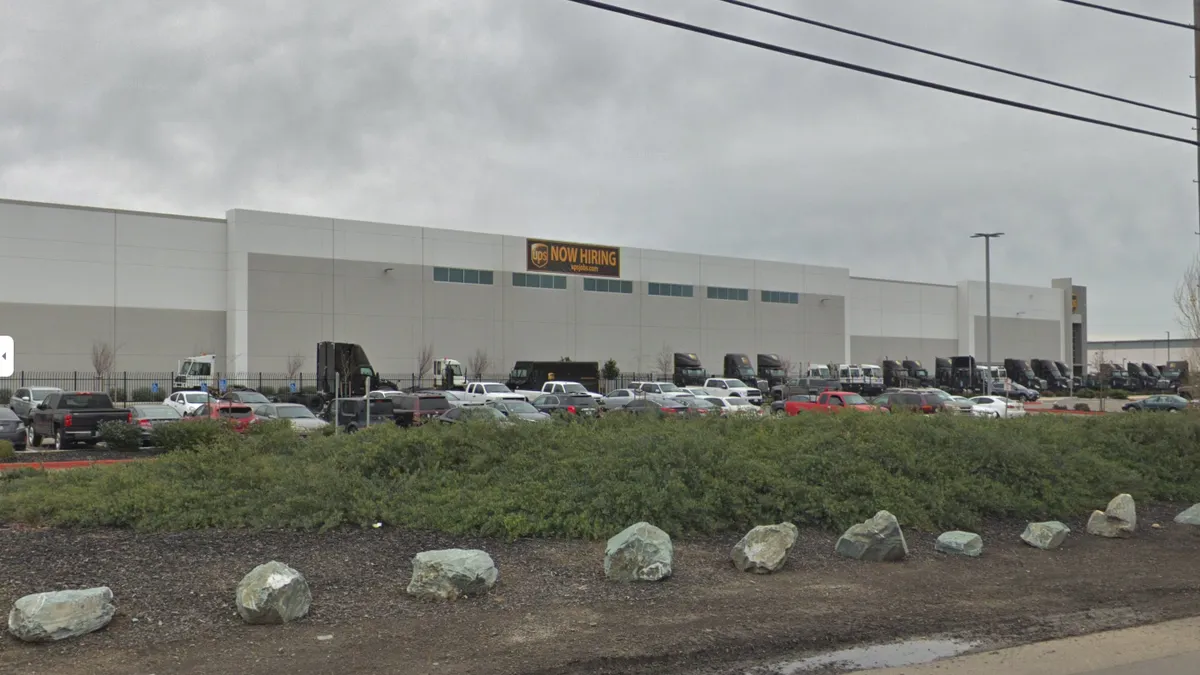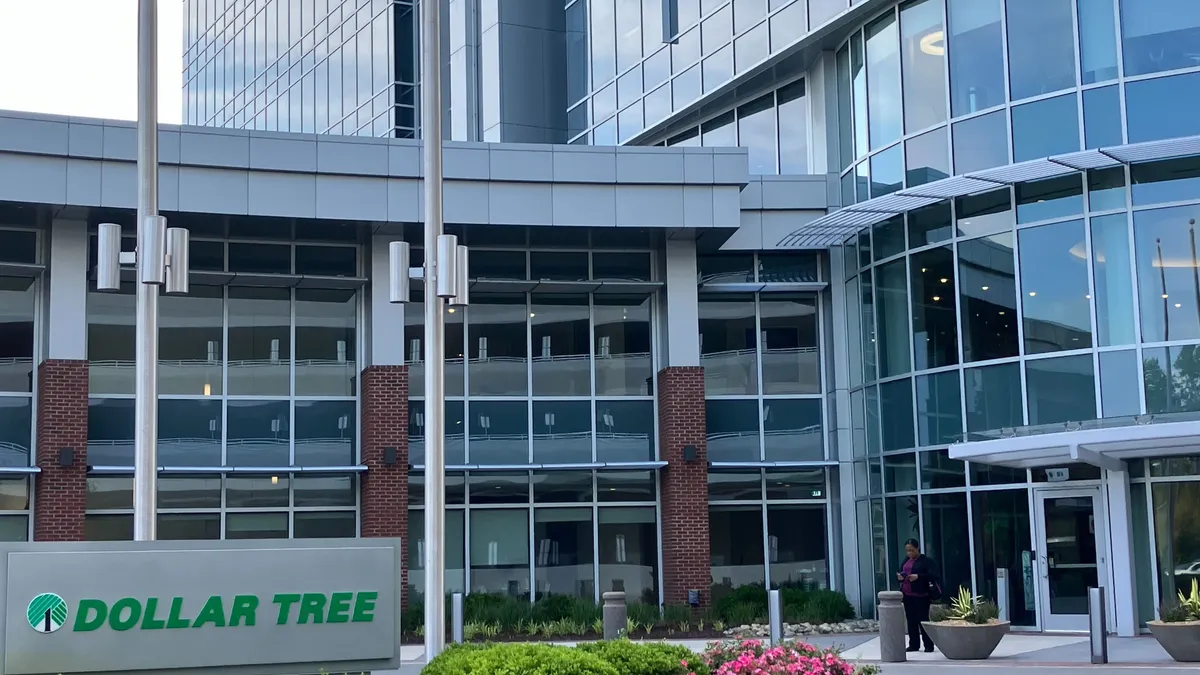UPS aims to increase retention and reduce absences among frontline employees by expanding an emergency childcare initiative from a California hub to more U.S. facilities into next year.
The program, run in partnership with Patch Caregiving, offers workers at the company's Lathrop, California, facility on-site day care if their typical childcare option falls through. The initiative helps the delivery giant eliminate scenarios in which an employee must call in sick to take care of a child, UPS and Patch representatives involved with the program told Supply Chain Dive.
Such a scenario is a common challenge for frontline workers in logistics and other industries, as the vast majority rely on family and friends as their main form of childcare, said Olivia Rosenthal, co-founder of Patch Caregiving, which handles the initiative's staffing. While many parents are happy with this arrangement, they want a reliable backup when their usual caregiver is unavailable.
"The problem parents told us was once or twice a month, when grandma's not feeling well or my car breaks down, I don't have a backup plan in place," Rosenthal said. "As a result, I can't show up to work."
Program growing after successful pilot
UPS initially ran the program as a pilot from August 2022 to January 2023 during the evening shift at the Lathrop facility, as employees often ran into challenges securing emergency childcare after school hours.
"How it works is a text message system, they have a phone number that they would text in and say, 'I need to use this service,'" said Renee Rea, talent acquisition manager for UPS’ Northern California district.
UPS representatives did not disclose specific prices for the emergency childcare services, but a portion of the expense is covered by the company. The amount of notice employees gave for each emergency childcare situation varied, according to Rea. Typical scenarios for employees to use the service included a last-minute cancellation from their regular childcare provider, working a double shift or getting called into work early.
"I really don't remember any situation where we turned anybody away," she added.
During the pilot, 80% of eligible employees participated and used the service more than once, resulting in the avoidance of 120 unplanned absences, according to a news release. The delivery giant also saw better retention rates among parents in the program versus shift workers at large in the same building, Rosenthal said.
"It was supposed to be an eight-week pilot, but it got extended week by week," she said.
UPS is expanding the program this year to include additional shifts at the Lathrop site, in addition to select Pennsylvania sites, per the news release. More facilities are slated to be covered by the program in 2024.
The program isn't a good fit for all company hubs, however. It's best suited for larger facilities that won't need major site adjustments to implement a childcare center, those involved with the program say. UPS selected Lathrop for the pilot over Fremont, California, partly because the Fremont facility would have had difficulties safely hosting a childcare site.
"There was no walk path for the children to go through that wouldn't go through the building, which would be a safety concern," Rae said. "We don't want them anywhere near the equipment."
A potential competitive advantage
The program is particularly helpful for women looking to advance their careers at UPS and newer employees, who often face hurdles with arranging backup childcare when they start their jobs, said Jeff Grant, VP of human resources for UPS’ West region.
UPS has a fast hiring process for frontline positions, with successful applicants often offered jobs within a day, according to Grant. But securing a reliable childcare provider can take much longer, leaving those employees vulnerable to potential absences as their workloads increase.
"For a new employee, it's really critical that they're there for the training," Grant said.
The program represents another way UPS differentiates itself among other warehouse employers in a highly competitive race to attract and retain employees, said Jeremy Tancredi, a partner in West Monroe’s Operations Excellence practice and a former UPS industrial engineer. While there may be upfront costs to ensure facilities can handle a childcare space, the initiative could help UPS reduce challenges associated with unplanned absences.
"If this is something that they're committed to, the cost is definitely going to be worth it in the long term in terms of dollars saved on retention and turnover," Tancredi said.























